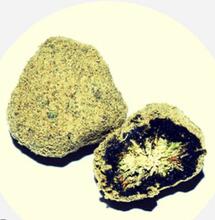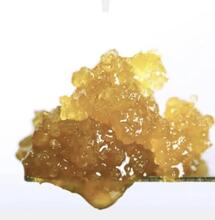Do CBD "Wellness" Products Work?

CBD is one of the biggest health trends of recent years. The UK's CBD market will be worth £1 billion by 2025. There are CBD products for every taste, including patches, vapes, drinks, edibles and creams are claimed to help everything from anxiety to sleep and muscular pain.
However, there's a big difference between the pharmaceutical-grade CBD and the CBD you're getting in products at your local supermarket. Pharmaceutical CBD products are those on which research has been carried out. In contrast, for wellness products – and particularly foods and drinks – there isn't any solid evidence that they could treat issues like anxiety.
Even if there was evidence that non-pharmaceutical-grade CBD could help with anxiety, the doses that companies are selling appear to be negligible compared to the doses being trialled in scientific studies. A can of carbonated CBD drink costs £2-£2.50 and contains, on average, 15mg of CBD. However, a recent study found that a dose of 300-600mg of CBD would be required to help with anxiety and stress potentially.
So, based on those figures, you would need to drink between 20 and 40 cans a day to receive any of the perceived therapeutic effects described in the study.
One CBD drinks company's website states that "75 per cent of those that use CBD for stress relief experienced benefits". This fact is from a study by Dr Julie Moltke, an industry consultant in the UK's burgeoning medicinal cannabis industry and author of the book A Quick Guide to CBD.
The study in question, however, was used to look at the anecdotal and perceived effect of CBD on issues like stress, anxiety and sleep
problems. It was only a study to examine user patterns and the perceived impact of non-pharmaceutical grade CBD.
It is an observational study. It is not a randomised controlled trial where a control group would receive a placebo. Therefore, the study author herself says that more studies are needed before any further conclusions can be made.
The worry is that people may be being deceived into parting with their money and that consumers may be exposed to significant public health concerns."
Many think CBD is harmless, but that is not entirely true. CBD can have some dangerous side effects, including making you tired, causing diarrhoea and suppressing appetite.
Many wellness websites will not tell you anything about the dangers that CBD can cause. One study has discovered that taking CBD in high doses can cause liver damage."
It states there is only one condition where good, high-quality evidence exists to suggest that CBD can effectively treat it. That condition is treatment-resistant epilepsy disorders in children, and in this case, the NHS is prescribing it for that purpose, albeit that is pharmaceutical-grade CBD and not food supplements.
A research paper published in 2023 uncovered that most non-pharmaceutical CBD in the UK did not contain what it claimed. Findings revealed that only 8% of products tested had concentrations within 10% of the advertised strength.
So, What do you do if you want effective CBD? Well, when it comes to the NHS, you won't unless you have one of the qualifying types of epilepsy. Otherwise, the only way is through one of the few private
clinics that can prescribe it; however, be warned that it is not cheap, as with all private healthcare.
If you think that a drink you can pick up while doing your "big shop" will cure all your problems, you will be disappointed.
More on this topic from Soft Secrets:
What are Transdermal cannabis patches?










